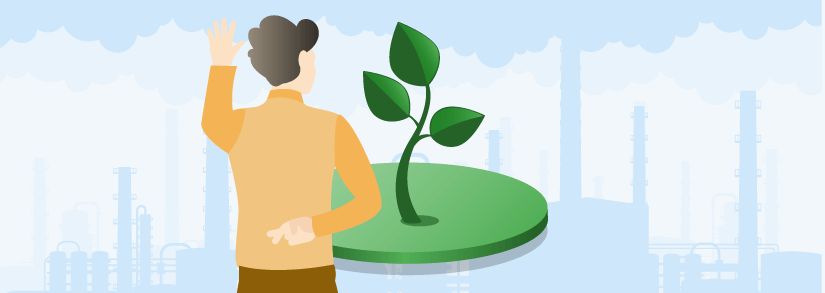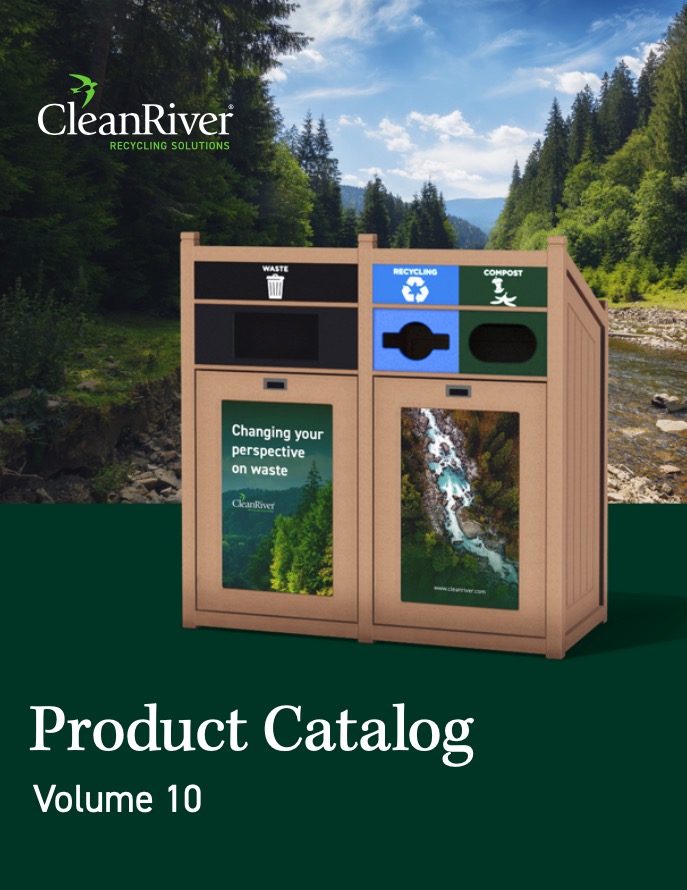Share
Thankfully, over recent years there has been a growing push for more sustainable business practices. Eco-friendly laws coming into place such as banning single-use plastics and companies committing to zero-waste initiatives like a CleanRiver recycling program are becoming more popular.
With that being said, a lot of businesses are also taking advantage of this trend in ways that can be classified as “greenwashing”. Read on for more information…
What is Greenwashing?
Greenwashing is the practice of making companies and brands appear more sustainable than they really are. For example, a company may claim to have a robust recycling program in place – but if they’re making no efforts to acknowledge and reduce the amount of non-recyclable waste they produce… the waste they do recycle becomes redundant. Ultimately, recycling is an optional solution to a complex problem and it should be viewed as a tool to manage waste rather than a solution to our waste problem entirely.
Types of Greenwashing

Based on the examples above, greenwashing can be categorized into several types:
- Environmental Imagery – using pictures of animals, leaves, water, and even the literal colour green to appear sustainable. Genuine eco-friendly products tend to have more plain packaging made out of recyclable materials, or no packaging at all!
- Irrelevant Claims – labels that say things like “BPA free” or “not tested on animals” are effectively useless because BPA is banned by law and most companies don’t retain detailed records that would prove animal testing was not being performed in the development of certain products.
- Hidden Trade-Offs – corporations can put up an act of being environmentally friendly but have a very unsustainable trade-off. Examples of this are when clothing companies use “recycled” or “organic” materials while hiding how much water, electricity, emissions, or even labour was used to create the product.
- Misleading Labels – the most common and easiest greenwashing example to avoid. Without bonafide proof, a lot of “100% natural” “certified” and “sustainably sourced” claims are just that. Self-declared and self-created claims!
Companies have to be careful of presenting baseless claims about sustainability and environmentally-friendly business practices. Don’t fall into the trap of greenwashing because it seems like a quick win for brand image. Ironically, you have to think about how “sustainable” your claims will be well into the future if you plan on keeping your green brand image intact for years to come. Once greenwashing is exposed… consumer confidence and client trust can suffer, ultimately taking a toll on everyone involved.
______________________________________________________________
Looking for more commercial sutainability tips? Check out these other blogs:
- The 6 Things Your Recycling Program Is Probably Missing
- What Are You Willing To Do For A Safe And Sanitary Workplace?
- Why Chemical Recycling could Change “Urban Mining” Forever
CleanRiver Recycling provides a variety of innovative, flexible, and customizable recycling solutions. Start saving money today with our green recycling programs.
If you have additional questions that weren’t answered in this blog post please call us at 1-866-479-4038 or email solutions@cleanriver.com


